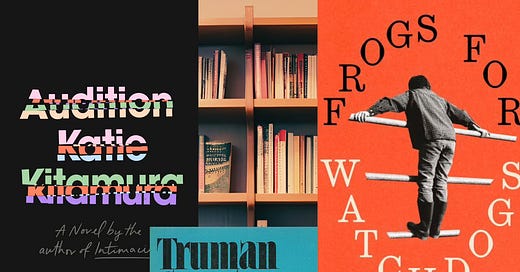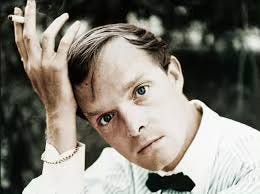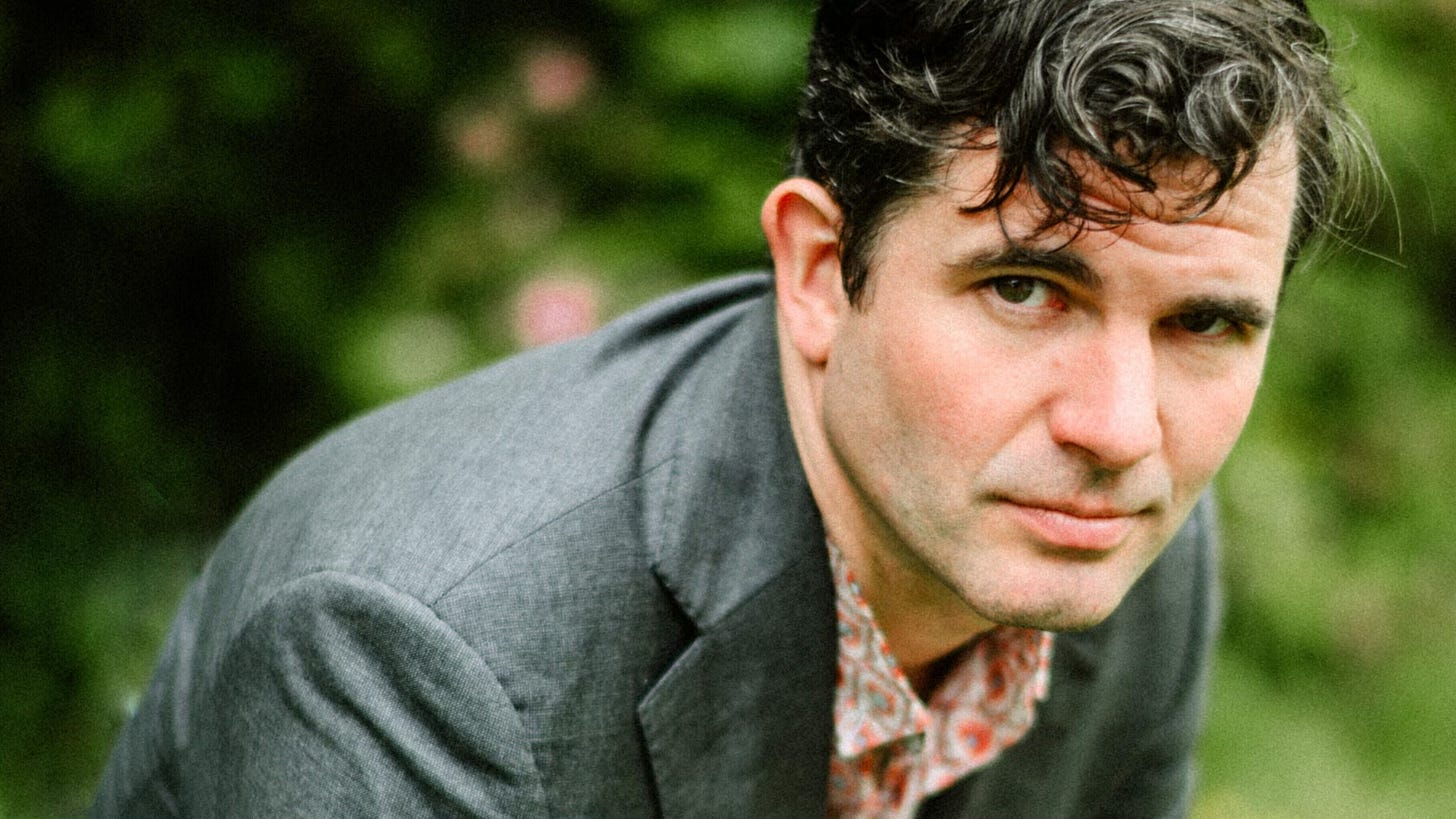Mid-May Book REVIEWS
Frogs for Watchdogs by Sean Farell, Breakfast at Tiffany's by Truman Capote and Audition by Katie Kitamura
Audition by Katie Kitamura.
Katie Kitamura has been a huge influence on both my decision to start writing fiction and how I approached my writing. Her previous novellas, Intimacies and A Separation, are books that I have read several times, immersing myself in her characters’ thoughts, and responses.
Both books combined soaring and stifling first person narratives with strong plots and I felt like her lead characters were taking my hand and leading me through their lives. There was somewhere to go.
Audition is a different experience. There is, I believe, a premise and maybe a character arc in the first half of the book which might be a 40 something woman’s affection / passion for a younger man. But then in the second half, the same young man is her son and has an attractive girlfriend who the woman sees as a reflection of herself and who also becomes an object of affection for the woman’s husband. Or not.
The woman is an actress who only does high quality work and, fortunately, has been able to make good money from a couple of projects so lives in a nice apartment in Manhattan.
The book was hard read and not because of Kitamura’s writing style which continues to be searingly honest but because she has taken the style to its extreme. And this extremity feels like it is blocking any kind of story which can sometimes make the book feel that it is unstructured.
There is an experiment going on with this book as it plays with perception. I have seen it suggested that by abruptly changing viewpoint halfway through the book the writer is suggesting that at least one half of the story is actually a play in which the character is performing. That wasn’t clear for me.
The book reminds me of Sondheim’s Company and Follies. Both were musicals that wrestled with the human condition and placed the audience as an observer of people were working out their shit. Neither show had a plot line as such but both showed character arcs - Bobby arrives at Being Alive while Sally has a nervous breakdown with Losing My Mind. Both are set in Manhattan.
It is perhaps this kind of effect that Katie Kitamura was trying to conjure up with Audition; an insight into the human condition. The relationship between the narrator and her son’s girlfriend is brutally described; not only is she losing out to a younger version of herself in her son’s affections but then in her husband’s as well. The problem is that we don’t know how much of this is true. And then we get frustrated, and then we get lost. I get the experimentation and the attempt to play with form and maybe even genre but it makes this book unsatisfying rather than unsettling.
I hope that Audition is a creative step towards something even more wonderful from Katie Kitamura and look forward to her next book.
Audition by Katie Kitamura is published by Penguin
Find out more and order a copy HERE
Breakfast at Tiffany’s by Truman Capote.
The title of this novella is so embedded in the universal consciousness that the story and its crispy writing get taken for granted. The tale’s protagonist, Holly Golightly, is either a ‘girl about town’, ‘aspiring starlet’, or, more probably but less prosaically a high class escort. She talks about earning money from ‘trips to the powder room’ which apparently refers to Jons giving escorts large amounts of money ostensibly to tip the powder room attendant but effectively as payment for services.
Holly is young and attractive and uses her looks and charm to earn money - today she might well have been an escort but with a lucrative side hustle on Only Fans. She has plenty of sex and alludes to having physical relations with women as well although she is also so flakey that we never know if we can trust her.
World War Two is a far away shadow see like a dark cloud out at sea. Holly’s brother may or may not have been killed in action and there is talk of how best to avoid the draft. Times are changing in Manhattan as they always do in a big city. Certain truths are already accepted in the right circles
There is a darker side to the city that Capote describes giving Breakfast at Tiffany’s transatlantic cousin vibes to Patrick Hamilton’s Midnight Bell tales from London. The foregrounding of drinkers and prostitutes and those who are exploring the more deviant sides of their nature care what led the Hearst Corporation to demand changes to the story’s text before publication in the 1958 edition of Harper’s Bazaar. Maybe the Truth hurt too much and the gossamer thin veneer of respectability and glamour that glossy mags rely on was threatened by Capote’s honesty.
In Breakfast at Tiffany’s it is the truth about Holly that hurts the most and is one of the most striking deviations from Blake Edwards’ fluffy movie adaptation. She is either opportunistic and caught up in a way of living that she can’t escape or she is a clever, manipulative and calculated scammer able to bend honesty to her will; the ‘40s prototype of Anna Delvey.
Capote’s writing is what makes this short book so wonderful; it is precise and evocative. Like a Claire Keegan book not a single phrase, scene or adjective in the 100 or so pages is superfluous. Not a single slur is wasted or metaphorical cigarette left burning in an ashtray.
Capote recognised that Breakfast at Tiffany’s had brought his writing style to a different level when interviewed by Roy Newquist in 1964
“the prose style is an evolvement … a pruning and thinning-out to a more subdued, clearer prose. I don't find it as evocative, in many respects, as the other, or even as original, but it is more difficult to do.”
It is easy to remember Capote for the man about Studio 54 that he became in the 1970s or think of Breakfast at Tiffany’s as a glanourous rom com. Neither do justice to an incredible story wonderfully written by an outstanding author with a unique gift for combining words. There is a reason that this book is considered a classic.
I read the 1998 paperback edition published by Penguin Books.
For more details and to order a copy click HERE
Frogs for Watchdogs by Seán Farrell.
I was in a writing group with two authors who write books that are aimed at children. Their skill at transforming words into rhythms, and shapes that sound fun when spoken aloud is dazzling. I never really know what feedback to offer them when they read because I don’t have kids and have no idea what they want or need.
With this in mind, I came to Frogs for Watchdogs by Seán Farrell a little dubious because the book is written from the perspective of an 8 year old boy. His Irish father has abandoned the family and the lad lives with his English mother and older sister in insecure accommodation. The trio move to an idyllic and isolated farmhouse in rural Ireland which the mother (who is also a healer) takes as a challenge to prove that she can survive and the children take as the start of an adventure.
Far from being a Swallows and Amazons type tale of derring do and middle class manners, Frogs for Watchdogs breaks digs into the details and obsessions that can rattle around a young mind. As grown ups we dismiss the thoughts we had as kids and and reject them as silly. Like a book that you reject after the first chapter these ideas are reduced and cast aside as incomplete and foolish. The fullness of what was thought is forgotten and Farrell’s writing reminds us how, as children, we craft detailed, multi-faceted stories to explain the world.
As grown ups we forget them and remember instead the stories that were told to us by adults - thunder is caused be the clouds banging together, the tooth fairy or Father Christmas. But what happens to the stories we create ourselves? Are they still tucked away dormant in our brains?
The young boy creates a detailed murder plans for local farm worker Jerry Drain who he sees capturing some of his mother’s affections.
If the crows call two times I'll kill him. But if they only call once then he lives. Crows don’t make birdsong, they speak out and if you listen hard it’s either a double or single call they end with. They’ll tell me if today is the day. When he comes his engine will be louder than the crows, but I’ll listen and I’ll know what to do.
The place to stab is in the neck straight away. I’ll land on the roof behind the cab. He won’t know I’m there, and when he climbs out, he won’t have time to look left or right afor I’m on top of him.
The plans fails and the last is discovered by his sister. It is this discovery that fixes the thought; when the story is remembered jointly it become a memory - ‘Do you remember when you were a kid and tried to murder Jerry Drain?’ Or maybe his sister (and Jerry Drain), will remember it more than the boy and when, as an adult, he is faced with their questions about his plan, he may no longer recall it.
There is a song by Argentinean singer Diego Torres called Donde Van which means ‘where do they go.’
Dónde van las luces que no duermen
Y las palabras que
Nunca llegaron al papel
Roughly ‘where do they go, the lights that don’t sleep, and the words that never make it to the paper.’
Frogs for Watchdogs could be considered a cautionary tale about the damage caused to young lives by careless adults. But more it is a celebration of the imaginative power we all have when we are young, the power to create stories that explain our world. Where does that skill go? Like the lights that don’t sleep and the words that never make it to the paper.
Frogs For Watchdogs the debut novel by Sean Farell is published by New Island Books. Find out more and order your copy HERE







